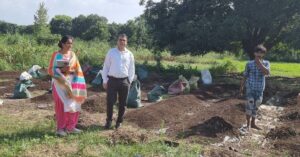500 Punjab Kids Turn ‘Farmprenuers’, Grow Organic Veggies in School Grounds!
Indiscriminate use of heavy toxic chemicals to grow food is one of the major reasons behind people’s deteriorating health in Punjab. These school students show a solution
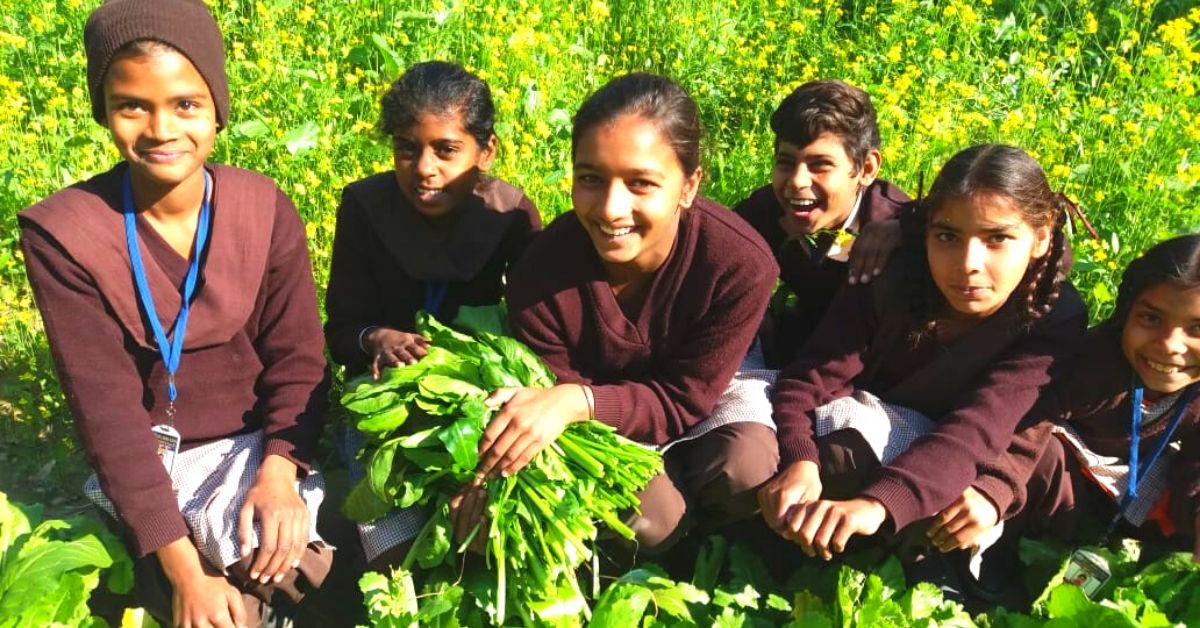
Since last one year, close to 500 students across 70 government schools in Punjab’s Mansa district have been quietly setting an example in healthy living that the entire nation should learn from. In their mid-day meals, these kids have been consuming organic vegetables.
Naturally, eating food which is free of dangerous pesticides has directly and positively impacted the health of these children.
So how did these schools manage to serve organic veggies and fruits to its children?
Did they increase their budgets to import fresh veggies on a daily basis? Is any farming organisation providing the same for free?
Not really! Instead, all the vegetables that are consumed in mid-day meals are grown and harvested by the students in the backyards of their schools as part of their curriculum.
In an innovative way to imbibe practical knowledge and lead a healthier life, students from classes 5 to 10 are being taught to grow vegetables like brinjals, mushrooms, chillies, bitter gourd, pumpkins and leafy vegetables.
This change in syllabi is part of a project called ‘Edible Gardens’, started by the district’s Horticulture Department under the state government’s “Tandrust Punjab Mission”.
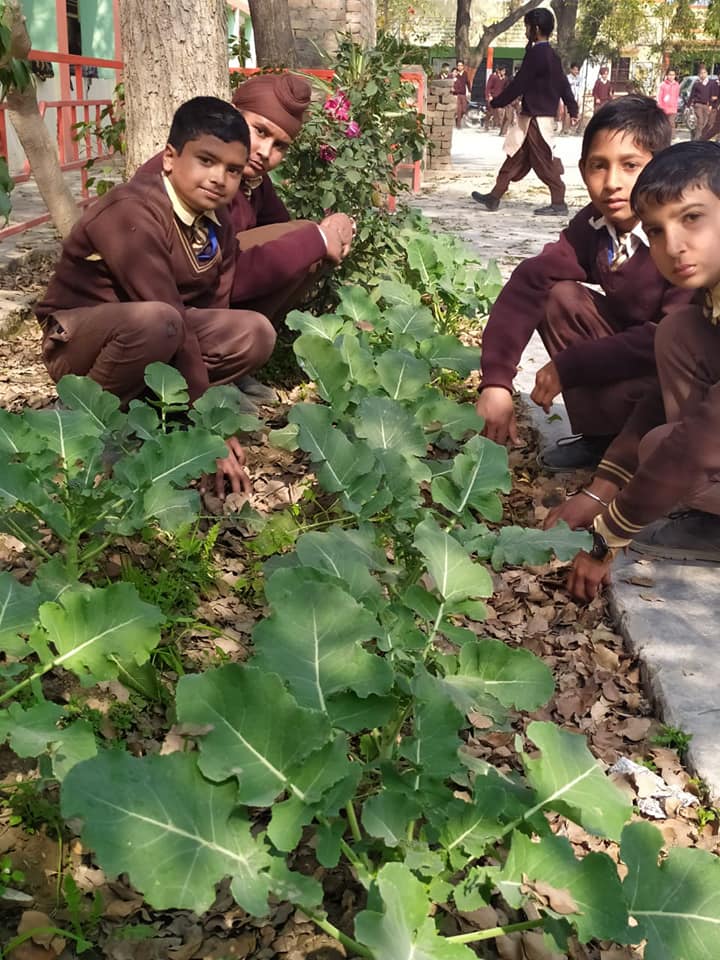
The brainchild of Horticulture Development Officer (HDO), Vipesh Garg who has served in the horticulture department for over 3 years, the program is already showing incredible impact.
“While the state government is promoting organic or natural farming, it may take a while before a concrete change can be visible. Till then, we have started a small initiative that not only raises awareness about the harmful pests but also provides a solution in the form of backyard farming,” Garg tells The Better India (TBI).
Since the freshly harvested veggies are used in the mid-meal scheme, this project also addresses the problem of inadequate food supply in government schools.
“There are so many government schools who are deprived of wholesome meals. Students often end up eating one type of dal or vegetable. By growing varied types of veggies, this project also ensures sufficient nutrient intake among students,” adds Garg.
From Farm to the Table – Organic food for all
The horticulture department began by training the school faculty on topics like plantation, mulching, cultivation, nursery establishment, landscaping. Next, they provided gardening kits that include seeds and green fertilisers to the schools for free.
Furthermore, based on weather conditions and the landscape of the school, the horticulture department also shares tips on growing certain type of veggies or fruits.
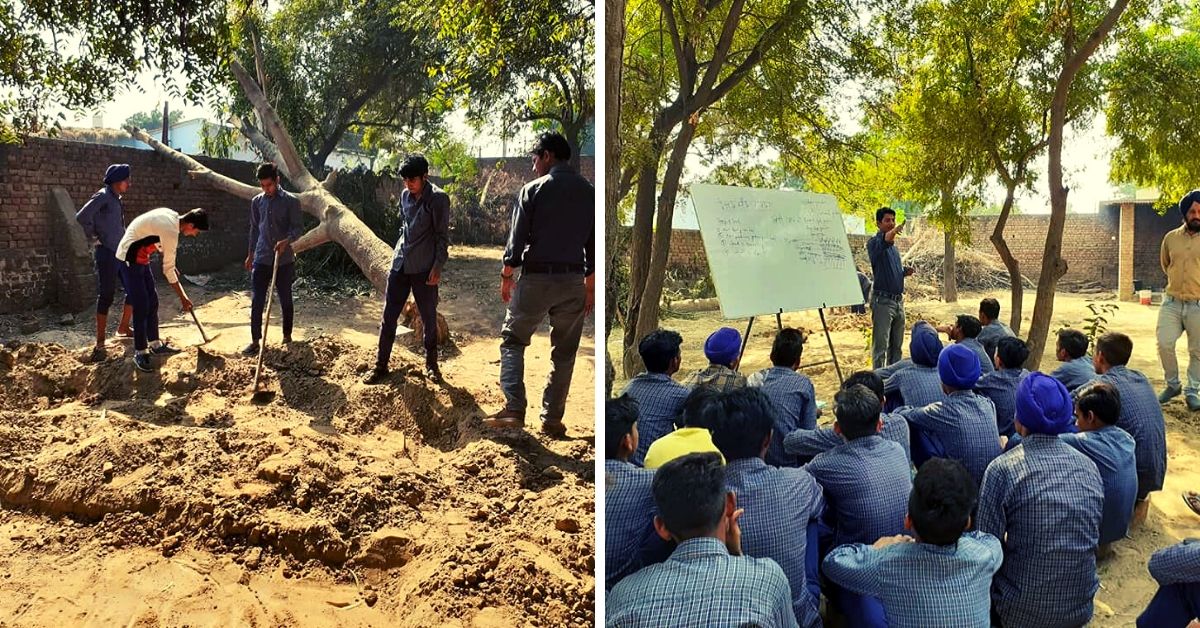
For example, in areas with a lack of sunlight or water, the horticulture team advises the school to grow trees like moringa, banana, curry leaf, amla, citrus, mulberry and herbs like aloe and basil.
Additionally, Garg and his team have designed a unique system called ‘biomimicry’ that emulates the process in which food is grown naturally in our ecosystem.
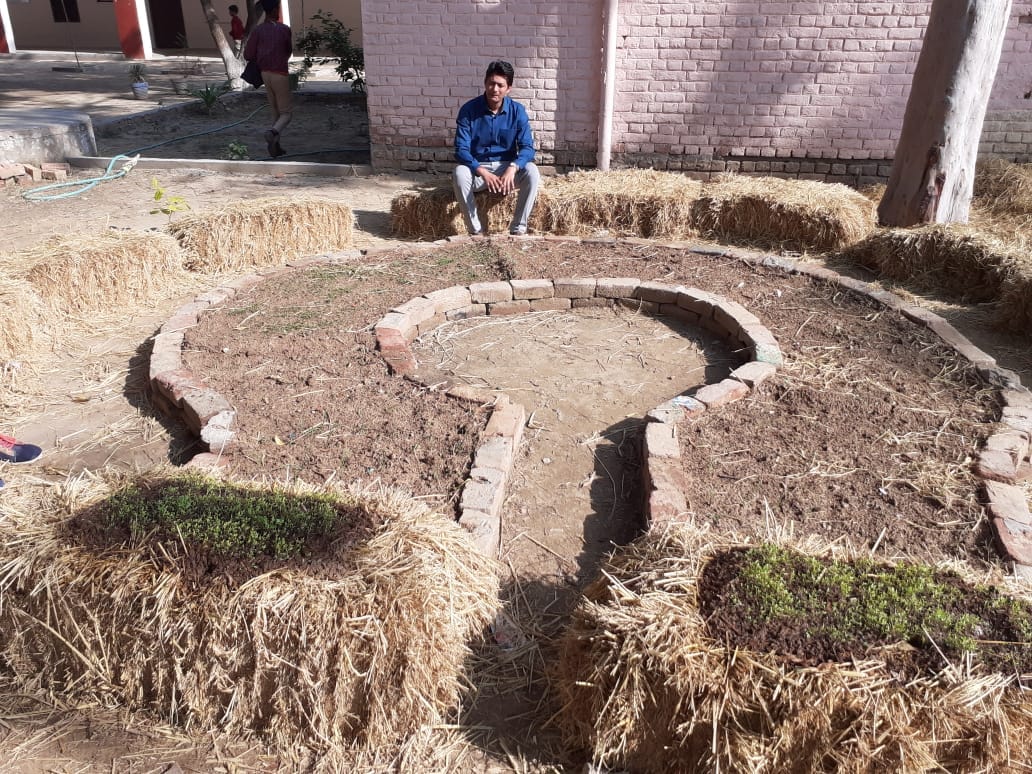
“The soil in a forest has five layers – pebbles/gravels, dry matter like twigs or leaves, nitrogen like manure or kitchen waste, compost and mulch. Every layer has a role to play in storing water, sunlight and decomposed matter. Due to this, the trees optimally utilise the land and needs minimal maintenance. We replicated the same five-layer gardening in government schools,” explains Garg.
While the team was quick to replace pesticides needed with organic fertilises that the school children prepare from kitchen and green waste, some schools also prepare compost from crop residues like wheat and paddy straw to grow oyster mushrooms.
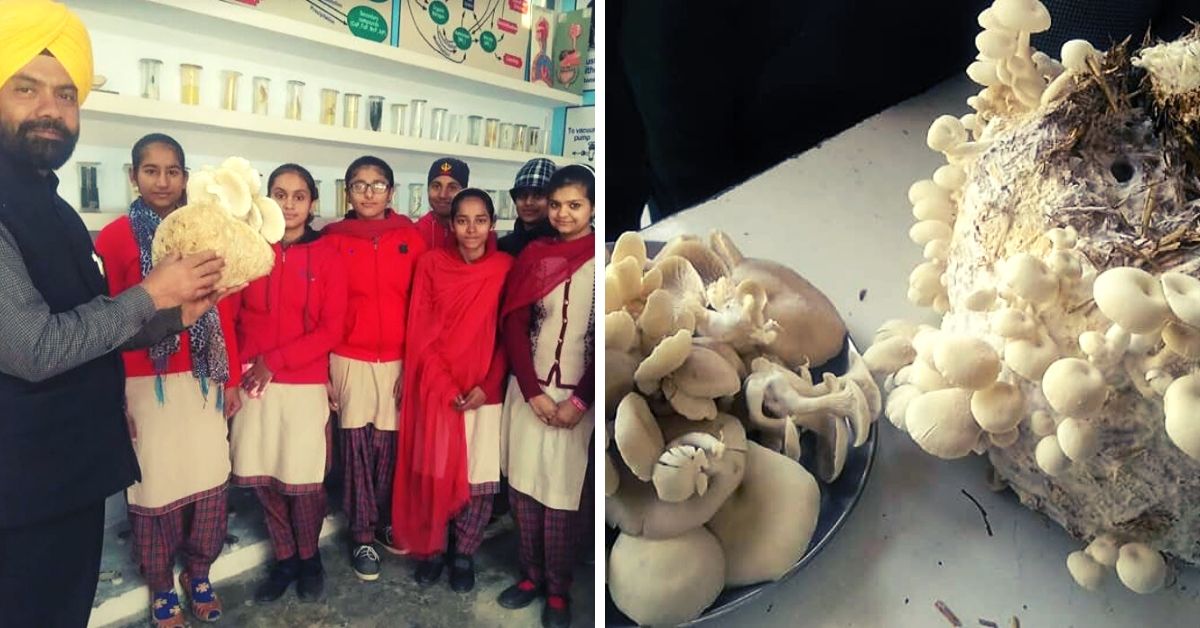
“We use one kilo of wheat straw substrates to grow 600 grams of mushrooms in our small edible garden every month. We were surprised to see the sheer volume of students who participated in this training workshop,” Dr Jasbir Singh, an entomologist and biology teacher in Government Senior Secondary School (GSSS) in Boha village tells TBI.
Incidentally, GSSS was one of the first schools to experiment with reusing crop residue that is otherwise burnt in fields causing massive air pollution. In fact, Dr Singh went a step ahead and even built chairs from straws in the garden where he takes open classes on farming.
“Stubble burning is a serious environmental crisis that requires immediate attention. Apart from farming, we have also trained students to use paddy straw in innovative ways like composting and building furniture out of it. So many of our students regularly bring agro-waste from their parents to prepare compost,” adds Dr Singh.
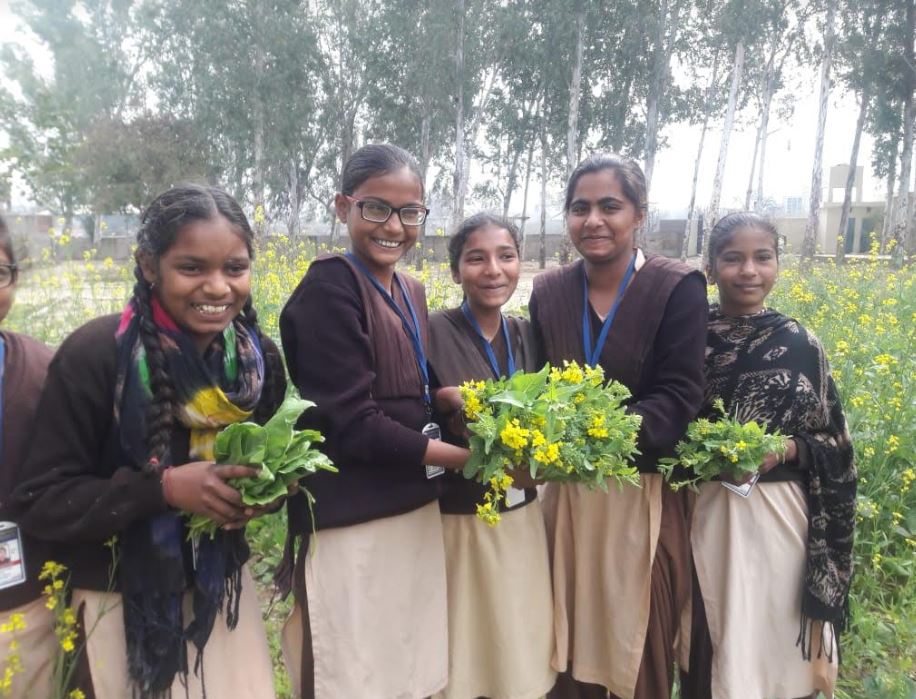
To incorporate the initiative into the everyday schedule of the children, the schools prepared the time tables in a way that every school allots an hour every week to the edible gardens. They first learn about the week’s farming activity and then have practicals. To ensure every student takes farming seriously, it is treated like every other subject and students are given marks.
As for the harvest, it depends on the area of the garden and ranges from anything between a kilo to ten kilos. When the produce is very high, the schools distribute it among villagers for free.
Take for instance, the government school in Gorakhnath with a student strength of 120. Thanks to a huge backyard and enthusiastic learners, the school harvests upto 20 kilos of vegetables like chilli, brinjal, bitter gourd and pumpkin daily.
“We do not let our food go to waste. If there are veggies left after we have made the meals for students, we give to the needy villagers for free,” says Harbans, teacher of the school.
Understanding the Impact
“The edible garden is a gift that is making students realise the hard work put in by our farmers to give us fresh vegetables. Children are not only learning to grow veggies but also concepts like shared labour, healthy eating, responsible agriculture and what it takes for a sustainable future,” Shailender Kaur, Director Horticulture, Punjab tells TBI.
According to Garg, many children and teachers have started growing vegetables in the backyards of their houses too, “On WhatsApp groups parents often share pictures of their fresh harvest at home. It has become a great community platform to share activities and information.”
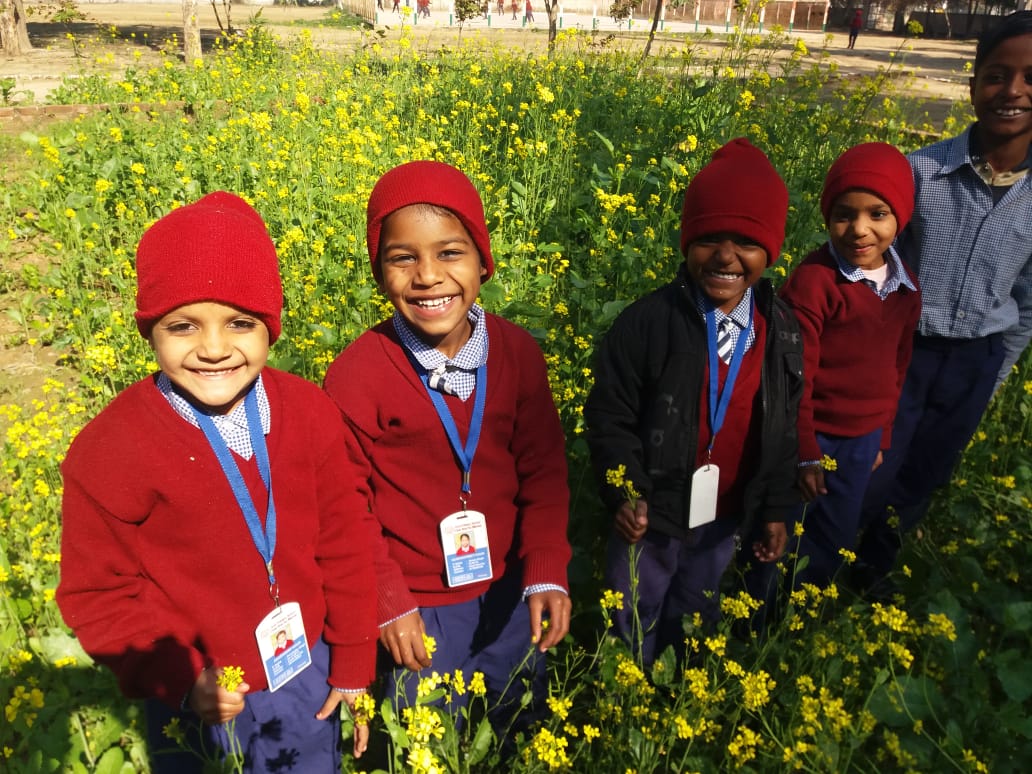
As a result, a trend is being noticed in households where children are happily consuming vegetables that they have grown.
Also, developing garden schools is a great way to engage the young populace in the farming profession, “We have seen many students take an active interest in understanding the economics of farming. They are curious to know how much money is needed to grow a crop. Some even discuss the process of farming in detail with their parents and explain the problems to the teachers,” says Dr Singh.
Models like edible gardens teach students eco-centric skills, alter the general negative perception about farming and teaches them a thing or two about being an eco-farmprenuer. If they are replicated in all schools across India, it can go a long way in promising a greener and healthier future for everyone.
Also Read: 50K+ Assam Kids Grow Organic Veggies In School Backyards, Earn Neat Profits!
Picture Courtesy: Vipesh Garg
(Edited by Saiqua Sultan)
Like this story? Or have something to share?
Write to us: [email protected]
Connect with us on Facebook and Twitter.
If you found our stories insightful, informative, or even just enjoyable, we invite you to consider making a voluntary payment to support the work we do at The Better India. Your contribution helps us continue producing quality content that educates, inspires, and drives positive change.
Choose one of the payment options below for your contribution-
By paying for the stories you value, you directly contribute to sustaining our efforts focused on making a difference in the world. Together, let's ensure that impactful stories continue to be told and shared, enriching lives and communities alike.
Thank you for your support. Here are some frequently asked questions you might find helpful to know why you are contributing?


This story made me
-
97
-
121
-
89
-
167




